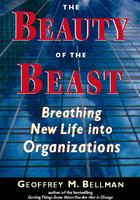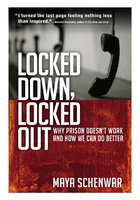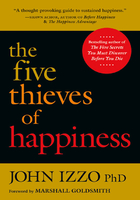If You Don't fight, You Lose Every Time
Stones in the furrow, rocks in the field
Can't hardly keep the plow from breaking
I could be there riding all around these fields
Boss of any thing worth taking
Shotgun on my shoulder, whip in my hand
Keep the mule in the furrow
And the cropper on the land
Stones in the graveyard, rocks in the fence
Surround the bones of those who bore me
I can see their faces rising up like questions
All along the road before me
With nothing to count on
But their hard-working hands
They were trampled like the cotton
And broken like the land
Stones in the pathway, rocks in the road
My friends and family have to travel
If I go with them, if I go against them
How will they speak my name tomorrow
All you can count on when your final crop comes in
Is the harvest that gets gathered
By your neighbors and your kin
Even if you're broken, at least you won't be shamed
You know some day your children
Will be proud to say your name
On this old river, on this plantation
In this dark season, on this long night
President Lyndon Baines Johnson signed the Voting Rights Act of 1965 into law on August 6. It was designed to make real the Fifteenth Amendment to the Constitution, passed in 1870. "The right of citizens of the United States to vote," that law says, "shall not be denied or abridged by the United States or by any State on account of race, color, or previous condition of servitude."
That sentence inspired hope in millions of African Americans who had only recently been slaves. But they were fighting words to most southern whites, who fully understood what that change would mean for them.
So, having been defeated in war, the white South did its best to achieve victory during peacetime, using threats, intimidation, and violence, up to and including thousands of lynchings, to stop attempts by Blacks to register and vote.
It isn't enough for a law to be on the books. It has to be real on the streets. The Fifteenth Amendment, for most southern African Americans, might as well have been written on the wind.
So the leaders of SNCC decided to test whether the Voting Rights Act of 1965 meant what it said, by going up and down the streets in Forrest City's African American neighborhoods, trying to get as many people as we could to register to vote.
One desperately hot afternoon in late August, working my way down one of the dusty back streets on the Black side of town, I stopped by a small house. An ancient-looking woman was rocking on the porch.
"Good afternoon, Ma'am," I said.
She nodded and kept rocking.
"I'm from the Freedom Center," I went on. "I wonder if I could talk with you for a minute or two?"
She nodded again and gestured towards a straight-backed chair opposite her. I sat down. I really wanted to ask how old she was, but it didn't seem the polite thing to do.
She must have guessed my question. "You know," she said, "I was born a slave."
In my forty-five years as an organizer, there are a very few moments when I felt I was in the presence of some kind of special grace.
"I was four years old when we got freed."
I didn't know what to say. I just sat there, in wonder, speechless.
The woman who had been born a slave reached out to me. "How can I help you?"
She had rescued me. "Ma'am, the president of the United States has signed a law saying that everyone has the right to vote."
She cut me off, gently. "I read the papers. Every day. I know."
"I was hoping you'd go with me to the courthouse to register to vote."
She stopped rocking and leaned forward.
"Son," she said, "I'm 106 years old. I don't leave my rocking chair."
I was caught between figuring out what year that meant she'd been born and trying to frame a response. All I could come up with was, "If you didn't have to leave your rocking chair, would you register to vote?" It was half a nervous joke. I didn't know what else to say.
"I would," she said. "But I don't ever leave my rocking chair."
I went back to the Freedom Center. As usual, there were a number of young Black men there, some doing different kinds of volunteer work, others just enjoying this one piece of liberated territory in the midst of Forrest City. Still in awe at having sat and talked with someone who had been born a slave, I told them what I'd just seen and heard.
One of the Michigan locals of the United Auto Workers union had sent the Forrest City SNCC project a brand-new bright yellow four-on-the-floor three-quarter-ton Dodge pickup. One of the young men took the keys from where they hung on a nail by the front door and slid into the driver's seat. The others climbed into the cab or the back of the truck.
They drove to where her house was located and stepped together onto the porch.
They lifted her, still in her rocking chair, carried her outside, and placed her, chair and all, in the back of the truck.
With the young men in the back kneeling next to her, each with a hand on the chair to steady it, they drove as slowly as they could, weaving their way through the Black community, up one street and down another: past the churches and the adjacent graveyards, the segregated elementary school and high school, the little grocery stores, Clay's Funeral Home, and the Freedom Center.
As word spread, people poured out onto their porches, into their yards, to watch as she passed, sitting straight and proud in her chair, in the back of the bright yellow pickup they all recognized on sight. Everyone knew who she was, the eldest member of their community, the woman who had been born a slave—and they knew where she was going.
When there was no street untraveled, no place in the Black community left to trumpet the news, the young men turned towards the courthouse, parking directly in front of the entrance, where everyone passing by could see them.
Then they carried her in that throne up the courthouse steps and into the registrar's office, so she could register to vote.
If that isn't Freedom, what is?
Where had this wonderful spirit of resistance come from? Forrest City, Arkansas, lies in the center of St. Francis County, named for the river that runs through it. Like that other great river into which it flows, the Mississippi, the St. Francis River flooded regularly. Over centuries, the earth surrounding it grew deep and dark for miles in every direction.
In 1965 and for hundreds of years before that, in spring along the St. Francis River, you could see thousands of sharecroppers and tenant farmers, Black and white, their hoes rising and falling in a long cadence as they chopped the cotton, cutting down the weeds that would otherwise choke the young plants. In fall, those same hands were back in the fields, pulling the now mature bolls away from the bract, the hard shell that lies underneath each white puff, stuffing the cotton into the sacks they dragged behind them down the long rows.
It was back-breaking, badly paying, poor people's work. From time to time, the poor people stood up and fought back. In 1919, African American tenant farmers and sharecroppers in Phillips County, just to the southeast, organized a union, inspired partly by new attitudes and perceptions that Black veterans brought back from the battlefields of World War I. The response by whites was the Elaine Massacre, a violent armed attack on the Black community, in which hundreds of African Americans were murdered.
White sharecroppers and tenant farmers had also tried to organize. They had even gotten as far as a strike, broken when the plantation owners brought in African Americans to pick the cotton.
Over time, Blacks and whites came to the same conclusion. Whatever hatreds and resentments they bore, when it came to organizing to change their wages and working conditions, they needed each other.
The tiny village of Tyronza is just about forty miles north and a little west of Forrest City. One night in July of 1934, seven African American and eleven white men met secretly, under cover of darkness, in the Sunnyside School. The school was on the boundary of land belonging to Hiram Norcross, who had kicked twenty-three tenant farmers and their families off his land that spring. They pledged that they would no longer accept twenty cents for their labor, but would organize a Southern Tenant Farmers' Union and demand a dollar for every hundred pounds of cotton they picked.
When the plantation owners laughed, the union called a strike, Black and white together. The planters hit back with evictions and violence, much of it instigated by the Knights of the White Camellia, the local variety of the Ku Klux Klan.
By the time the planters gave in and agreed to pay what the strikers demanded, an estimated thirty thousand sharecroppers and tenant farmers up and down the east side of Arkansas had folded their arms, laid down their tools, and refused to pick cotton. The strike and the Southern Tenant Farmers' Union had become an international cause. The Socialist Party sent its president Norman Thomas to Arkansas and took on the responsibility of fundraising to help the evicted workers, now living in tent cities along the highways. The British Labor Party sent two of its senior women activists as official observers.
I learned this history long after I left Forrest City and St. Francis County from H. L. Mitchell, the white former tenant farmer who had been the union's president. Only twenty-six years had passed between the great strike and when I arrived. Some of the Black farmers with whom I spent time must have been part of it. Given how often in community organizing past experience leads to future action, some of them must have been among the leaders of the Black farmers' cooperative SNCC was now helping to organize.
But no one ever said a word to me. Perhaps the memories of the long years that followed that sweet moment of victory, in which the union was effectively broken, and so many of its members and leaders driven from the Delta, were just too bitter. Maybe this just wasn't the kind of information you volunteered to a white stranger, even a SNCC worker. Maybe it was just that I didn't know enough to ask the right questions.
Whatever the explanation, by the time I arrived in East Arkansas in 1965, memories of that brief moment of racial solidarity had been repressed and, at least publicly, forgotten. Once again, the line that divided Black and white ran as straight and true as a long row of cotton.
If it was hard getting the authorities to enforce local laws, when it came to federal statutes, it was as if the South had never rejoined the Union.
I got to Forrest City a year after the passage of the federal Public Accommodations Act of 1964, one of the historic pieces of legislation forced through Congress by the Civil Rights Movement. Beyond all the legalese, what it said was that if any enterprise served the public, it had to serve the public. It couldn't serve only the white public and not the Black public. It had to serve everybody.
Today we would say, "What part of ‘serve the public' don't you understand?"
This apparently simple message was having a hard time getting a hearing among white Arkansans. So, being creative community organizers, the SNCC project leaders decided to speed things up a little.
"We've got you down for the Wagon Wheel," one of them told me. This was not good news. The parking lot of the edge-of-town barbecue joint regularly sported more rebel flags than a Confederate re-enactors' reunion.
"Fred will be parked across the street in case there's trouble." Fred was a white volunteer from one of the other projects, come to Forrest City for the day to bolster our meager forces.
"What's he going to do if there's trouble?"
"He'll drive back to the Freedom Center and let us know."
Okay, at least there was a plan.
Half a dozen African American teenagers piled into my Chevy. Young as they were, they were all seasoned veterans, trained and tested in nonviolence.
We walked in and crowded together at one table. Half a dozen sullen young whites sat at a table just across the aisle from us. I recognized one of them as Pat, who occasionally waited on me at the lumber yard.
I nodded at him. He didn't nod back.
The waitress came over, pad in hand. "What do you want?" she asked.
We'd agreed in advance that we'd all have ice cream. The goal was to test the Public Accommodations Act, to see if we'd be served—not to linger over a full meal while a crowd of angry whites gathered outside, as was so often the case. One by one, the teenagers ordered.
"I'd like a hot fudge sundae," I said.
The waitress dropped her pad to her side and shook her head. "The law says we've got to serve them," she said. "We don't have to serve you."
They ate. I paid up. We started to the door. Outside, one of Forrest City's largest was waiting.
"You!" he screamed, pointing at me. He'd picked up a log from the hickory pile that fed the barbecue fire and was holding it in one massive hand. "What kind of ice cream do you like?"
It seemed, under the circumstances, a strange question. I couldn't figure out how to respond.
"You like chocolate, don't you? You like chocolate." He spat the word out of his mouth like it was a piece of gristle he'd bitten down on in his barbecue sandwich.
I was still trying to figure out what he meant—okay, I'm slow sometimes—when he hit me. I think it was his fist rather than the hickory stick, but I'll never know for sure.
Regardless, I woke up in the back seat of Fred's car, my broken nose bleeding like the proverbial stuck pig. There were just the two of us in the car. "Where are the kids?" I was near panic.
"Don't worry. We got them out," Fred said. "They're okay."
"That's good." I relaxed a little bit. "Are we going to the Freedom Center? We need to tell them there's trouble."
Fred turned and looked at me strangely. "Don't worry," he finally said. "They know. Believe me, they know."













